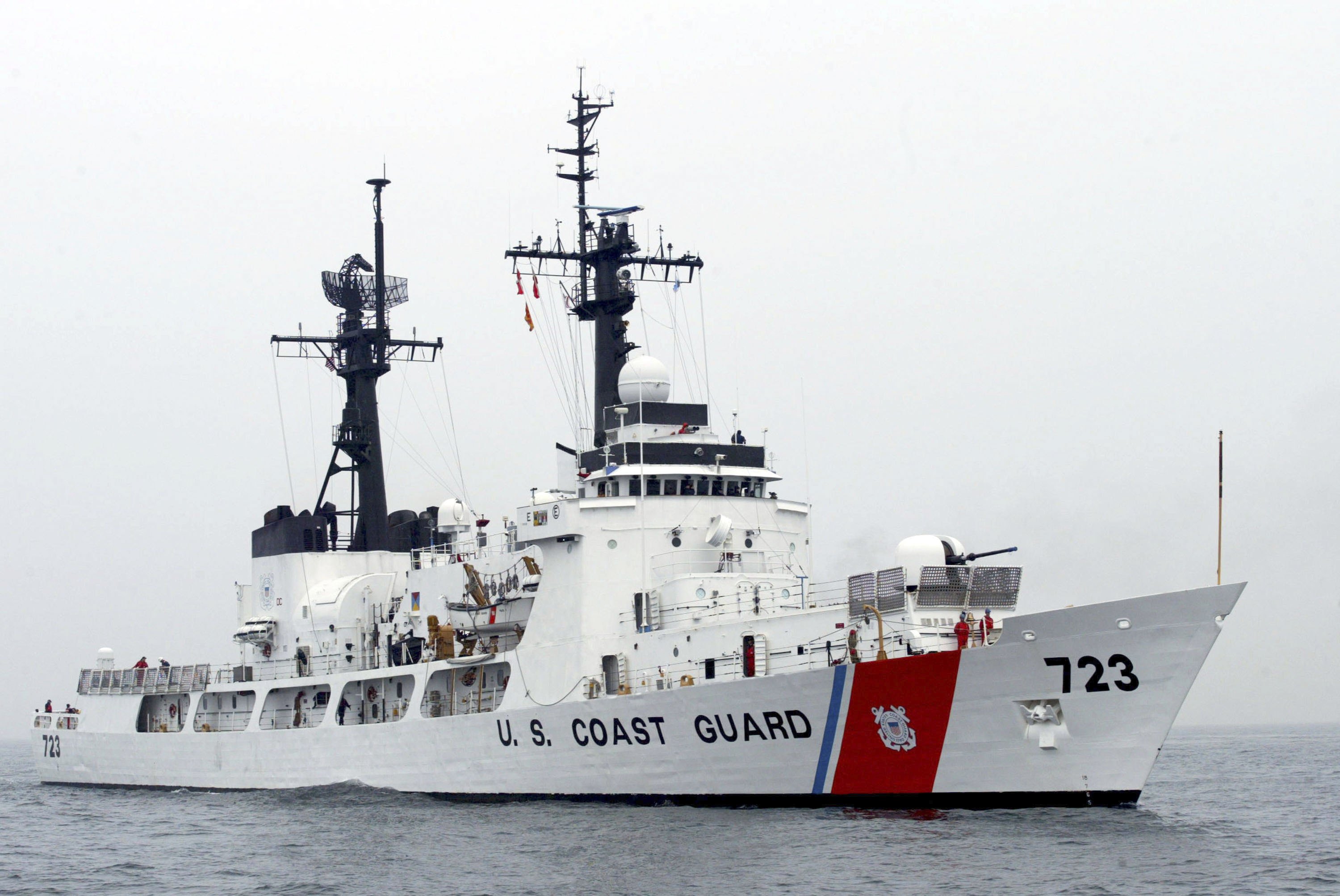The U.S. Coast Guard is secretly detaining drug suspects for weeks or months without charges or bathrooms


A free daily email with the biggest news stories of the day – and the best features from TheWeek.com
You are now subscribed
Your newsletter sign-up was successful
The U.S. Coast Guard "usually has a reputation for being the good guys out there — rescuing people, apprehending bad guys," says Carol Hills at PRI's The World, but new reporting has also uncovered a darker side: In recent years, Coast Guard vessels have become a sort of secret floating Guantánamo Bay for the War on Drugs. Coast Guard cutters patrolling off the coast of South and Central America interdict suspected drug smugglers and hold them without charge on board, often chained to the deck, for an average of 18 days but often much longer, before handing them over to U.S. authorities in Florida.
Seth Freed Wessler, who reported the story for The New York Times Magazine, recounts one example where an Ecuadorean fisherman, Jhonny Arcentales, and two shipmates were held in chains on the decks of Coast Guard and Navy vessels for 70 days, incommunicado and without access to a bathroom, after they were picked up moving cocaine to Guatemala. Arecentales, now serving 10 years in federal prison, had no idea where he was headed, Wessler says. "He describes the experience of feeling like he really might disappear."
The U.S. claims authority to nab foreigners far outside of U.S. waters, for smuggling drugs that may not be headed to the U.S., from a combination of international maritime law, agreements with Latin American nations, and the U.S. Maritime Drug Law Enforcement Act. John Kelly, now President Trump's chief of staff, played a significant role in authorizing these "floating Guantánamos," Wessler says. "The Coast Guard makes the argument that these people are not formally under arrest until they get to the United States," and courts have generally accepted that, he adds, but it's pretty clear that something else is going on, and even Coast Guard commanders appear uncomfortable with it. You can read Wessler's article at the Times Magazine, and listen to part of his interview with PRI below. Peter Weber
The Week
Escape your echo chamber. Get the facts behind the news, plus analysis from multiple perspectives.

Sign up for The Week's Free Newsletters
From our morning news briefing to a weekly Good News Newsletter, get the best of The Week delivered directly to your inbox.
From our morning news briefing to a weekly Good News Newsletter, get the best of The Week delivered directly to your inbox.
A free daily email with the biggest news stories of the day – and the best features from TheWeek.com
Peter has worked as a news and culture writer and editor at The Week since the site's launch in 2008. He covers politics, world affairs, religion and cultural currents. His journalism career began as a copy editor at a financial newswire and has included editorial positions at The New York Times Magazine, Facts on File, and Oregon State University.
-
 6 exquisite homes with vast acreage
6 exquisite homes with vast acreageFeature Featuring an off-the-grid contemporary home in New Mexico and lakefront farmhouse in Massachusetts
-
 Film reviews: ‘Wuthering Heights,’ ‘Good Luck, Have Fun, Don’t Die,’ and ‘Sirat’
Film reviews: ‘Wuthering Heights,’ ‘Good Luck, Have Fun, Don’t Die,’ and ‘Sirat’Feature An inconvenient love torments a would-be couple, a gonzo time traveler seeks to save humanity from AI, and a father’s desperate search goes deeply sideways
-
 Political cartoons for February 16
Political cartoons for February 16Cartoons Monday’s political cartoons include President's Day, a valentine from the Epstein files, and more
-
 Nobody seems surprised Wagner's Prigozhin died under suspicious circumstances
Nobody seems surprised Wagner's Prigozhin died under suspicious circumstancesSpeed Read
-
 Western mountain climbers allegedly left Pakistani porter to die on K2
Western mountain climbers allegedly left Pakistani porter to die on K2Speed Read
-
 'Circular saw blades' divide controversial Rio Grande buoys installed by Texas governor
'Circular saw blades' divide controversial Rio Grande buoys installed by Texas governorSpeed Read
-
 Los Angeles city workers stage 1-day walkout over labor conditions
Los Angeles city workers stage 1-day walkout over labor conditionsSpeed Read
-
 Mega Millions jackpot climbs to an estimated $1.55 billion
Mega Millions jackpot climbs to an estimated $1.55 billionSpeed Read
-
 Bangladesh dealing with worst dengue fever outbreak on record
Bangladesh dealing with worst dengue fever outbreak on recordSpeed Read
-
 Glacial outburst flooding in Juneau destroys homes
Glacial outburst flooding in Juneau destroys homesSpeed Read
-
 Scotland seeking 'monster hunters' to search for fabled Loch Ness creature
Scotland seeking 'monster hunters' to search for fabled Loch Ness creatureSpeed Read
